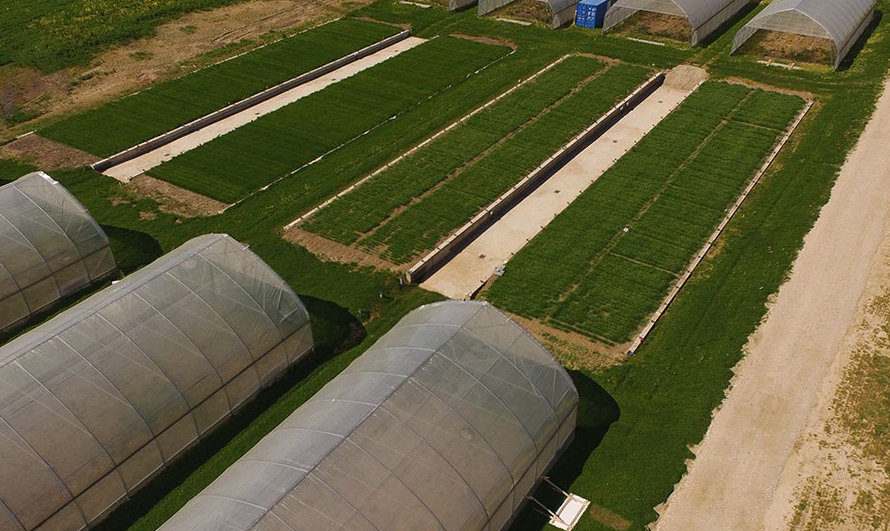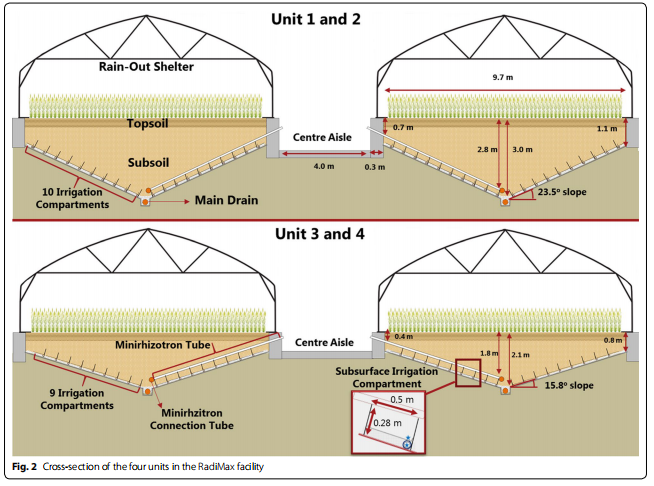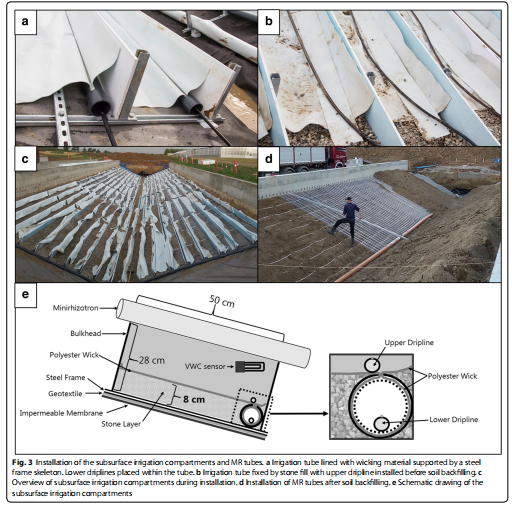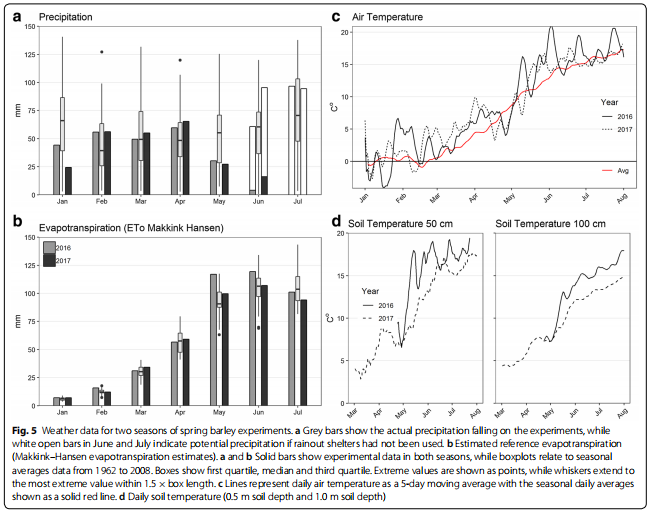利用Videometer多光谱成像系统构建的Radimax系统用于植物深根研究
前言:Videometer公司是多光谱成像系统生产商,开发了系列多光谱成像设备如VideometerLab 4多光谱成像系统、VideometrMR根系多光谱成像系统、VideometerLiq固、液两用多光谱成像系统并与丹麦歌本哈根大学联合开发了Radimax深根研究用多光谱成像系统,目前利用Videometer系统发表的文章已经超过了250篇,是当前表型研究领域发表文章多、应用广泛的多光谱成像系统。
摘要
背景: 根是植物的关键器官,要实现产量稳定,有效利用来自土壤资源至关重要。但作物基因型之间的根性状表型变异多数还未知,田间根系发育筛查昂贵且耗力。因此,函待开发在田间进行全生长植物根系性状、特别是位于土壤深层的根系研究的新方法。
结果: 研究人员开发了一种新型表型设施(RadiMax)用于在半田间条件下研究根系生长以及土壤资源获取。设施包括4个单元,每个单元面积为400m2,分别安装有150根微根管,允许对0.4 m–1.8 m或 0.7 m–2.8 m土壤深度间隔的根进行观察。根系观测通过多光谱微根光成像系统实现。植物生长行与水分梯度垂直,设施安装有多深度亚灌溉系统以及移动雨棚。水梯度可实现将根观测与冠层胁迫反应进展相关联。
结论:要验证以上技术概念,选择了栽培种春大麦 (Hordeum vulgare L.) ,种植在该系统中进行为期两季的研究。利用该系统可观测到不同深根生长基因型差异,在水梯度下,可观测到地上部的生理反应。尽管进一步技术开发和技术验证还在进行中,半田间设施不失为一种在土壤深层鉴别土壤资源有效利用的根基因差异的新方法。
关键词: 干旱,微根管,氮元素,表型,根,半田间土壤,水
补充:北京博普特科技有限公司是丹麦Videometer公司中国区总代理,全面负责其系列多光谱成像设备在中国市场的推广、销售和售后服务。





Construction of a large-scale semi-feld facility to study genotypic diferences in deep root growth and resources acquisition
Simon Fiil Svane1*,Christian Sig Jensen2 and Kristian ThorupKristensen1
Abstract
Background: Roots are vital organs for plants, and the efective use of resources from the soil is important for yield stability. However, phenotypic variation in root traits among crop genotypes is mostly unknown and feld screening of root development is costly and labour demanding. As a consequence, new methods are needed to investigate root traits of fully grown crops under feld conditions, particularly roots in the deeper soil horizons.
Results: We developed a new phenotyping facility (RadiMax) for the study of root growth and soil resource acquisi tion under semi-feld conditions. The facility consists of 4 units each covering 400 m2 and containing 150 minirhizo trons, allowing root observation in the 0.4 m–1.8 m or 0.7 m–2.8 m soil depth interval. Roots are observed through minirhizotrons using a multispectral imaging system. Plants are grown in rows perpendicular to a water stress gradi ent created by a multi-depth sub-irrigation system and movable rainout shelters. The water stress gradient allows for a direct link between root observations and the development of stress response in the canopy.
Conclusion: To test the concept and technical features, selected spring barley (Hordeum vulgare L.) c*rs were grown in the system for two seasons. The system enabled genotypic diferences for deep root growth to be observed, and clear aboveground physiological response was also visible along the water stress gradient. Although further technical development and feld validation are ongoing, the semi-feld facility concept ofers novel possibilities for characterising genotypic diferences in the efective use of soil resources in deeper soil layers. Keywords: Drought, Minirhizotron, Nitrogen, Phenotyping, Root, Semi-feld, Soil, Water